How to Get Pre Workout Out of Your System?
Author:
Unlock your full potential by engaging with our experts and community! Have questions about your fitness journey or looking for expert advice on weightlifting techniques? Don’t hesitate — leave a comment below and Oleksandr Maksymenko will provide a personalized answer and insights to help you reach your goals.
Torokhtiy is reader-supported. Some links are affiliate links, and we may earn a commission at no extra cost to you. See our disclosure page for details.
It is not surprising that many are looking for an answer to the question “How to get pre workout out of your system”. After all, not everyone will appreciate the effects and symptoms that can occur every time they take a pre-workout.
From this article, you will learn which key component needs special attention, and whether you can do something to get pre workout out of your body.
How to get pre workout out of your system? – The key component of a pre-workout is caffeine, and it is quickly absorbed and peaks in the bloodstream. However, we can drink plenty of fluids and take activated charcoal.
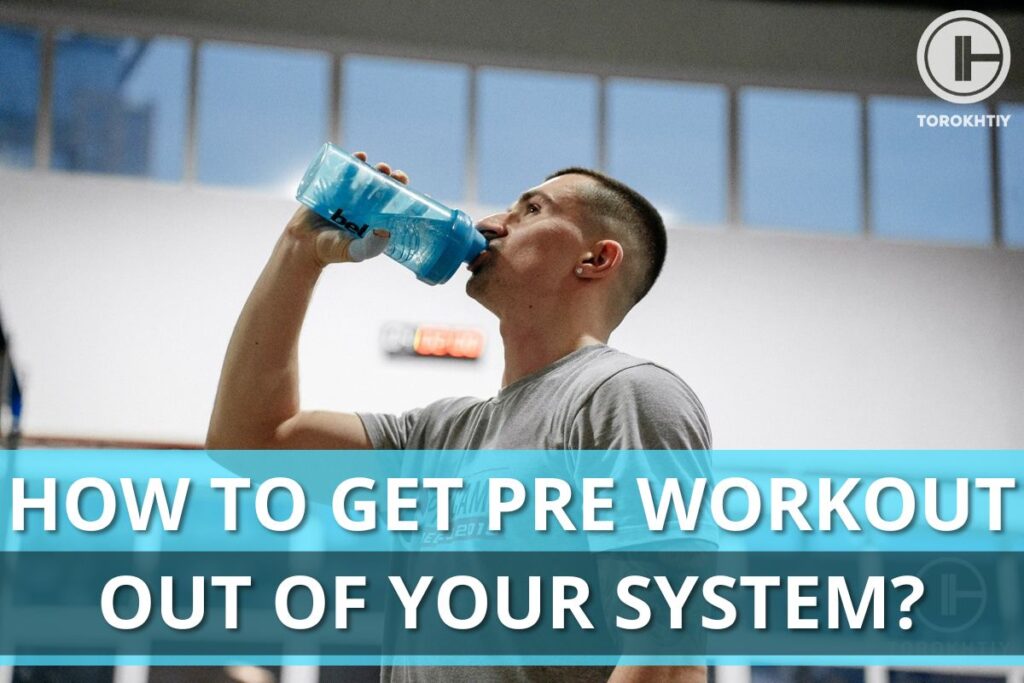
How to Get Pre Workout Out of Your System (Safety Considerations)
Pre workout supplements designed to enhance athletic performance during training sessions. They typically include caffeine, creatine, beta-alanine, amino acids, and other ingredients that increase muscular endurance, high-intensity performance, reducing fatigue and help us maintain better focus.
Aside from individual intolerance to the key ingredients and food additives found in pre-workouts, as well as harmless tingling from beta-alanine, in general, short-term use of pre-workouts is considered relatively safe when taken by healthy adults at recommended dosages.
However, pre workouts are a multicomponent supplement, and each of these components has its own mechanism of action, the onset of effects, the period of reaching the peak concentration and elimination rate.
It is also worth understanding that the absorbing, distributing in the body, and excreting (which is known as pharmacokinetics) of specific ingredients may differ in different people.
For example, it is known that there is large inter-individual variability in caffeine pharmacokinetics. Therefore, it is difficult to predict the reaction of an individual to specific pre-workout, especially considering that these products differ greatly in composition and dosage of ingredients.
Unlike the rest of the components of pre-workouts, which are safe for most healthy adults, caffeine requires special attention. Therefore, the recommendations you will see below are mainly related to caffeine.
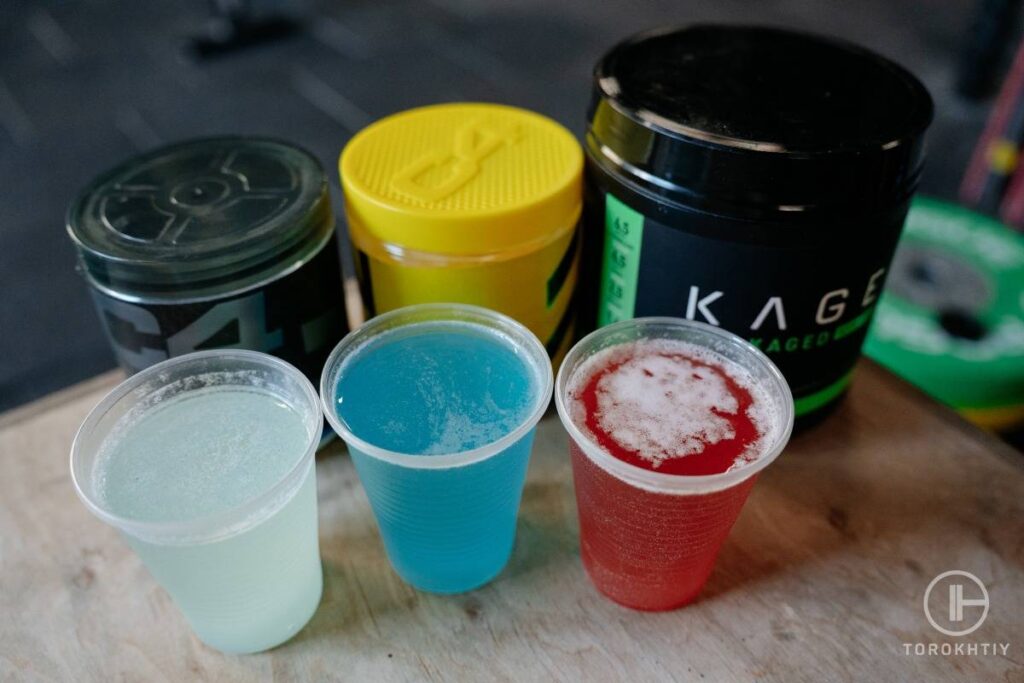
This is due to the fact that, unlike other pre-workout components caffeine:
- May cause harm to some people even at a relatively low dose (100 mg),
- Can be contained in a pre-workout in a very high single dose (300-400 mg and even more),
- Has the greatest risks for health if we take too much of it,
- Is able to cause a number of symptoms – from irritability and nervousness, to vomiting and seizures,
- Has a long period of action.
So how to wear off pre workout? We have 2 tips and key recommendations for you.
Tip #1 – Drink More Fluids
Honestly, once you have taken pre workout, you cannot do much, because caffeine is absorbed very quickly and can reach peak values already after 15 minutes (although in some people the peak occurs up to 2 hours).
However, this does not mean that we can do absolutely nothing. In case of mild overdose supportive treatment is used, which includes hydration. So drink more fluids (especially plain water) to support your body!
Tip #2 – Take Activated Charcoal
If caffeine ingestion is recent (i.e. 1-2 hours passed after taking it), multiple intakes of activated charcoal can bind caffeine and reduce its concentration in serum.
By the way, in cases of severe or even life-threatening caffeine intoxication, intravenous hydration or hemodialysis are used. So let’s say it again – we can’t do much with a really strong overdose.
Key Recommendation – Prevent Problems, Not Solve Them
The toxic effects of caffeine are manifested at very high dosages. According to the FDA, serious toxic effects (such as seizures) occur at a single dose of 1.2 g of caffeine.
Pre-workouts contain an average of 100 to 300 mg of caffeine, with some containing 400 mg or slightly more. So we need to be very careful when choosing this type of supplement.
It is also important to consider that the upper safe dose of caffeine for healthy adults is 400 mg. So if you’re taking a pre-workout supplement, you need to consider your total daily intake from all sources, including coffee and tea.
That is, if you have already drunk 2 cups of coffee, then you can take a pre-workout with a maximum dose of 200 mg. And that’s assuming you have a great caffeine metabolism!
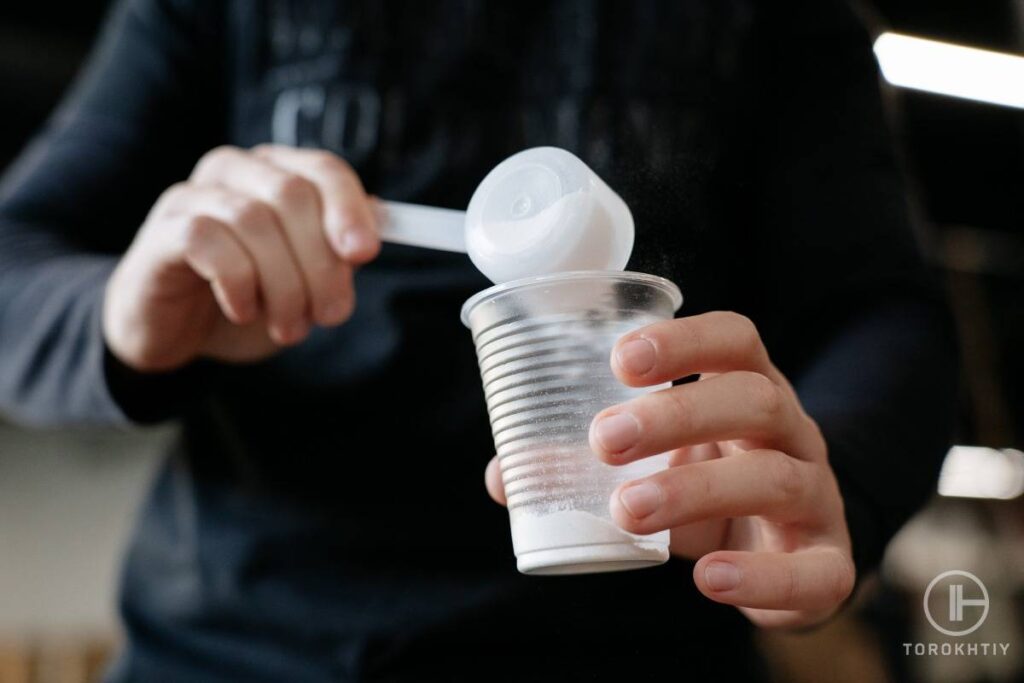
Overall, the best thing we can do is not create problems in the first place:
- Consider your individual caffeine tolerance,
- Consider the total amount of caffeine you consume from all sources so that it does not exceed 400 mg per day,
- Choose pre-workouts with a low-to-moderate single dose of caffeine (use 200 mg as a general guideline),
- Find your personal “sweet spot” dose of caffeine that won’t cause significant negative effects. Start with the lowest dose (100 mg) and take the lowest effective dose later (200 mg as a guideline), increasing the dose very gradually.
Keep in mind that for performance enhancing effects plateau may occur already at a dose of ~3 mg/kg or ~200 mg of caffeine. At such a dose, athletes can maintain an optimal ratio between performance enhancing effects and reducing the risk of adverse reactions.
And if you don’t want to frantically search for an answer to the question of “How to calm down from pre workout”, you can use pre-workouts without caffeine (stim-free).
How Long Does Pre Workout Normally Last?
The half-life of caffeine averages 5 hours in the average adult. That is how much time the body metabolizes half of what you consume. Therefore, the effects of caffeine (and accordingly, pre-workout) last quite a long time. If you use a stim-free product (without caffeine), such a pre-workout will last much less.
Recommended Pre Workout
Cellucor C4 Ripped® Sport
- Item Form: Powder
- Best for: Overall Athletic Performance, High-Intensity Exercise Performance, Muscular Endurance, Training Volume, Reducing Fatigue, and Pumping Effect
- Flavor: Arctic Snow Cone and Fruit Punch
- Caffeine (mg): 150
- Special Ingredients: Beta Alanine and Betaine Anhydrous
- Servings per Container: 30
- Price per Serving: ~$0.87
Cellucor C4 Ripped Sport contains 135 mg of caffeine per one serving, as well as beta-alanine.
Caffeine has been shown to enhance performance and improve endurance capacity, while beta-alanine improves high-intensity exercise performance and helps to increase training volume, with the greatest effect in exercises lasting 1-4 minutes.
C4 Ripped Sport also contains big amounts of vitamins B6 and B12. Overall, if you are no longer a beginner to working out and want to try a pre-workout for breaking training plateau, this product is a great option to try.
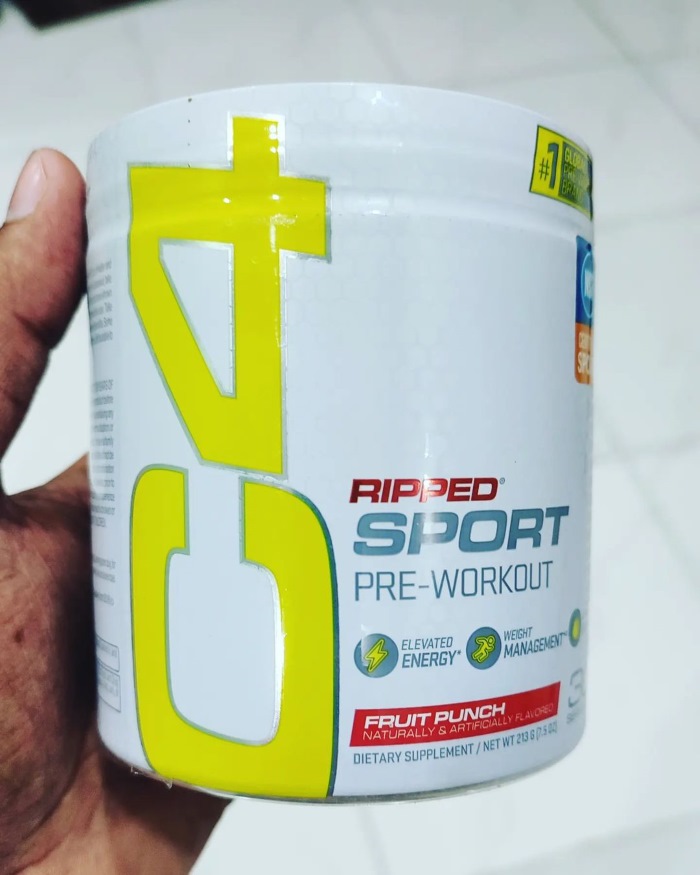
It will suit people weighing 67-90 kg who have never taken pre-workout supplements, as well as people with experience taking pre-workout supplements who weigh 50-60 kg.
A special bonus – C4 Ripped Sport is certified by NSF for Sport, which means that this product has been tested for substances prohibited in sport!
If you want to try a caffeine-free option, check out NO3 Ultimate Stimulant-Free Pre Workout. This product contains a blend of components to promote the synthesis of nitric oxide (NO). If you are interested in an increased pumping effect, this is exactly what you need!
NO3 Ultimate Stimulant-Free Pre Workout
- Form: Powder
- Ingredients: L-Citrulline, Arginine Silicate, Arginine Nitrate, Arginine Alpha-Ketoglutarate
- Flavors: Blue Raspberry, Fruit Punch
- Package Information: 210g
- Serving Size: 10.7g
- Price per Serving: ~$2.00
- Company Founded: 2002
- Recommended by Athletes: Brittany Ann, Scott Mathison, Demi Bagby
FAQ
Is it Normal to Feel Sick After Pre Workout?
If you feel sick after a pre-workout, this indicates that you should either avoid this type of supplement, reduce the portion size, or switch to one with fewer ingredients and a lower caffeine dosage.
If you experience severe symptoms, it’s important to stop using pre-workout and consult with a healthcare provider as soon as possible. And if you have an underlying medical condition, you need to consult your doctor even before you buy a pre-workout!
Does Pre Workout Show Up on Drug Tests?
If the pre-workout does not contain prohibited substances, the drug test will not detect violations. You can minimize the risks by purchasing pre-workouts that have been independently tested by a third party.
Cellucor C4 Ripped® Sport is NSF Certified for Sport®, which means you minimize the risks of testing positive and being sanctioned. NSF is recognized by the U.S. Anti-Doping Agency (USADA). Another organization with world recognition is Informed Sport.
Remember that the only way to avoid sanctions is to not take any supplements.
Conclusion
So how to counteract pre workout? In cases of mild caffeine overdose, we can only support our body by drinking fluids, and also take activated charcoal in the first hours after taking the pre-workout if you experience negative symptoms.
It is also essential to be aware of the potential risks associated with pre workout supplements and seek medical attention if necessary.
Have you experienced side effects with any pre workout supplements you have taken? What was the most effective strategy for you to get preworkout out of your body? Share below!
Also read:
- What to Look For in a Pre Workout
- How Long Does Pre Workout Take To Kick In
- Does Pre Workout Help You Focus
- Why Does Pre Workout Make You Poop
- Is It Bad to Drink Pre Workout Without Working Out
- How Long Does Pre Workout Last
- Pre Workout Powder With Creatine
- When to Take Pre Workout
- Nitric Oxide Supplements Guide
- What Is Non Stim Pre Workout
References:
- Multi-ingredient pre-workout supplements, safety implications, and performance outcomes // Journal of the International Society of Sports Nutrition: https://jissn.biomedcentral.com/articles/10.1186/s12970-018-0247-6#Sec39.
- Pharmacokinetics of Caffeine: A Systematic Analysis of Reported Data for Application in Metabolic Phenotyping and Liver Function Testing // Institute for Theoretical Biology: https://www.frontiersin.org/articles/10.3389/fphar.2021.752826/full.
- Pharmacology of Caffeine // Caffeine for the Sustainment of Mental Task Performance: Formulations for Military Operations: https://www.ncbi.nlm.nih.gov/books/NBK223808/
- Caffeine Toxicity // Alexandra Murray; Jeremy Traylor: https://www.ncbi.nlm.nih.gov/books/NBK532910/.
- The clinical toxicology of caffeine: A review and case study // Cyril Willson: https://www.ncbi.nlm.nih.gov/pmc/articles/PMC6247400/.
- Spilling the Beans: How Much Caffeine is Too Much? // FDA: https://www.fda.gov/consumers/consumer-updates/spilling-beans-how-much-caffeine-too-much.
- Caffeine // ASC: https://www.ais.gov.au/nutrition/supplements/group_a#caffeine.
- Caffeine // Justin Evans; John R. Richards; Amanda S. Battisti: https://www.ncbi.nlm.nih.gov/books/NBK519490/.
- Photos are made by Torokhtiy Media team.
Why Trust Us?
With over 20 years in Olympic weightlifting, strength training, nutrition coaching, and general fitness our team does its best to provide the audience with ultimate support and meet the needs and requirements of advanced athletes and professional lifters, as well as people who strive to open new opportunities and develop their physical capabilities with us.
By trusting the recommendations of our certified experts in coaching, nutrition, and sports training programming, as well as scientific consultants, and physiotherapists, we provide you with thorough, well-considered, and scientifically proven content. All the information given in the articles concerning workout programming, separate exercises, and athletic performance, in general, is based on verified data.
The product testing process is described in more detail here.
Author: Oleksandr Maksymenko
Certified Sports Nutritionist,
MSc Sports Dietetics
Specializing in: Weight management, Fitness / Sports nutrition
Oleksandr is a professional fitness nutritionist certified by the Fitness Professional Association (FPA). He follows the principles of evidence-based dietetics and fosters a healthy relationship with food in his clients, ensuring there are no strict prohibitions on their favorite foods or frequent lapses. His primary goal is not only to achieve results for you but also to sustain them over the long term, all while enjoying tasty and delicious food.



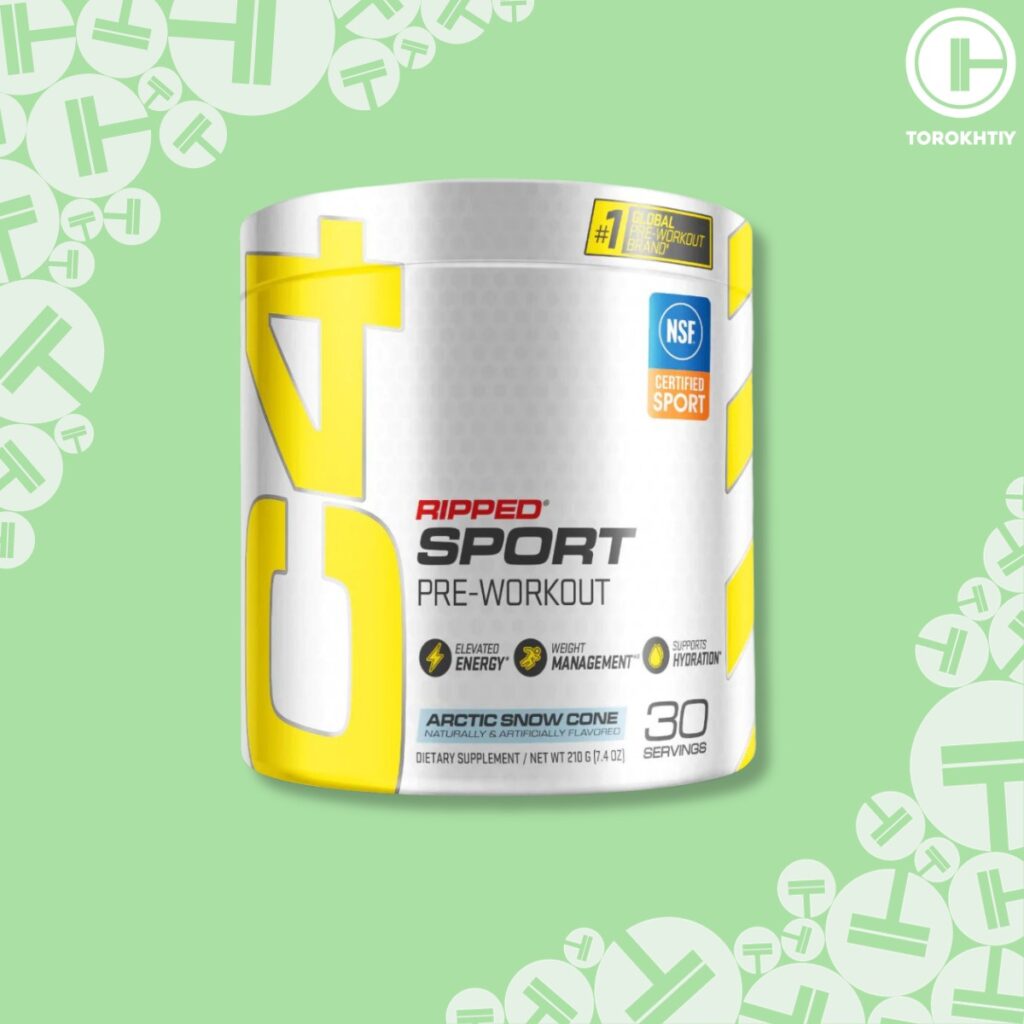
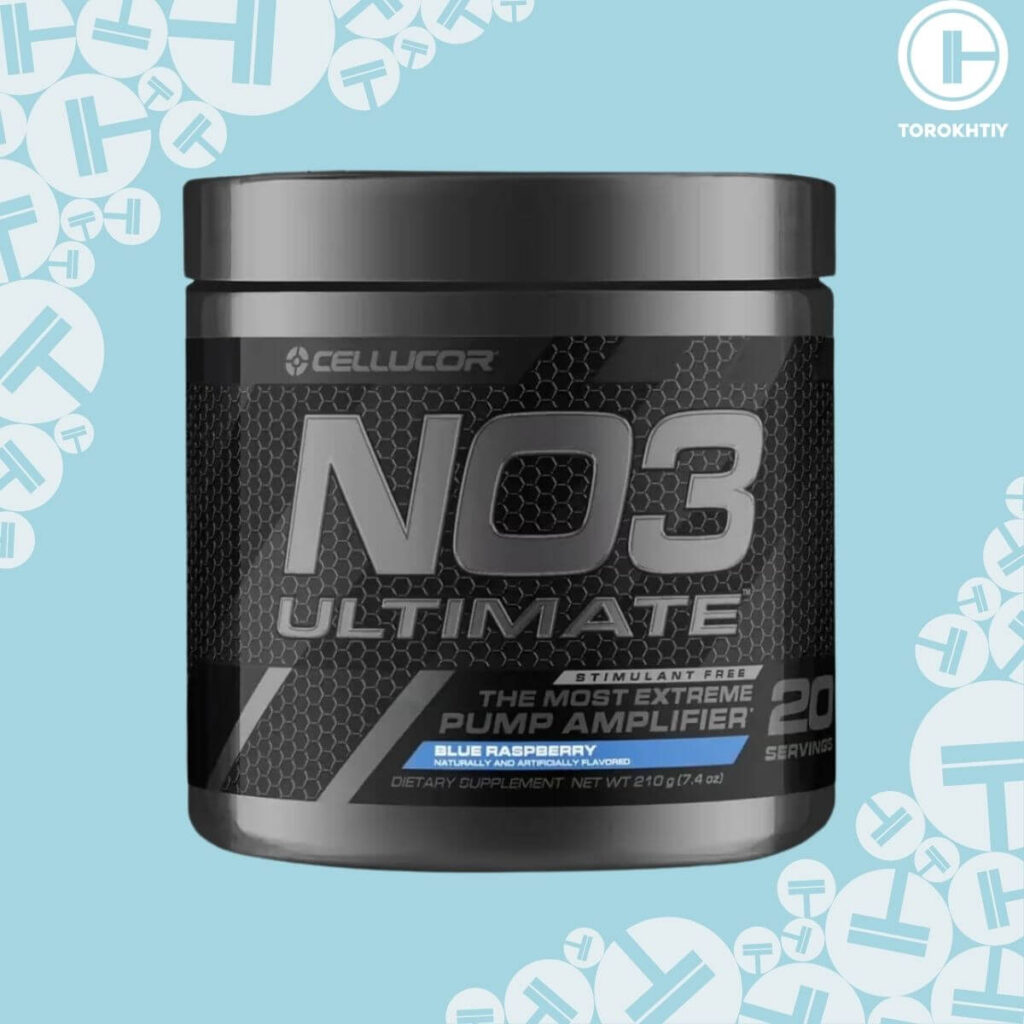
Still have questions after reading our article? Unlock your full potential by engaging with our experts and community! Don’t hesitate — leave a comment below and Oleksandr Maksymenko will provide a personalized answer and insights to help you reach your goals.